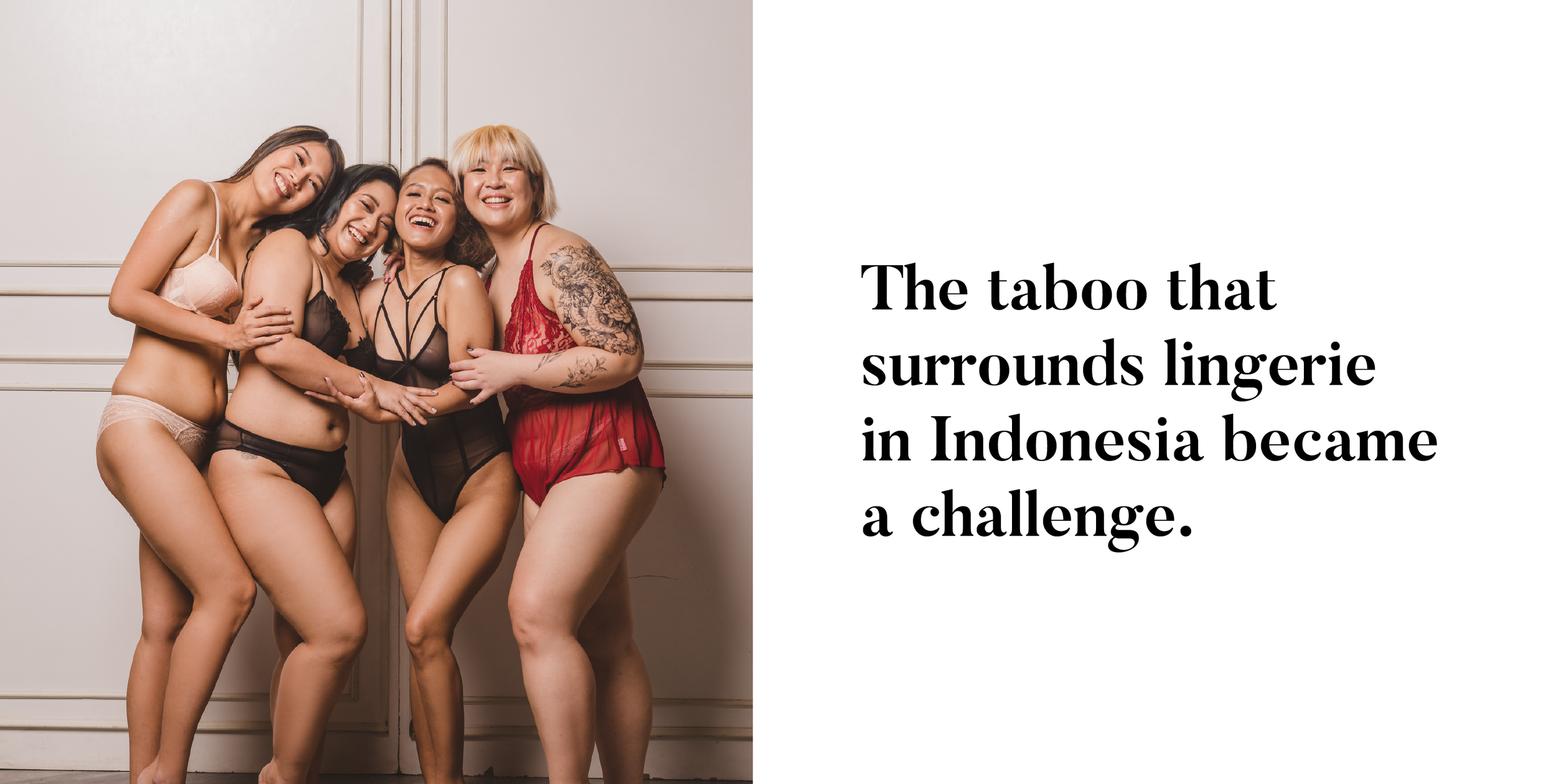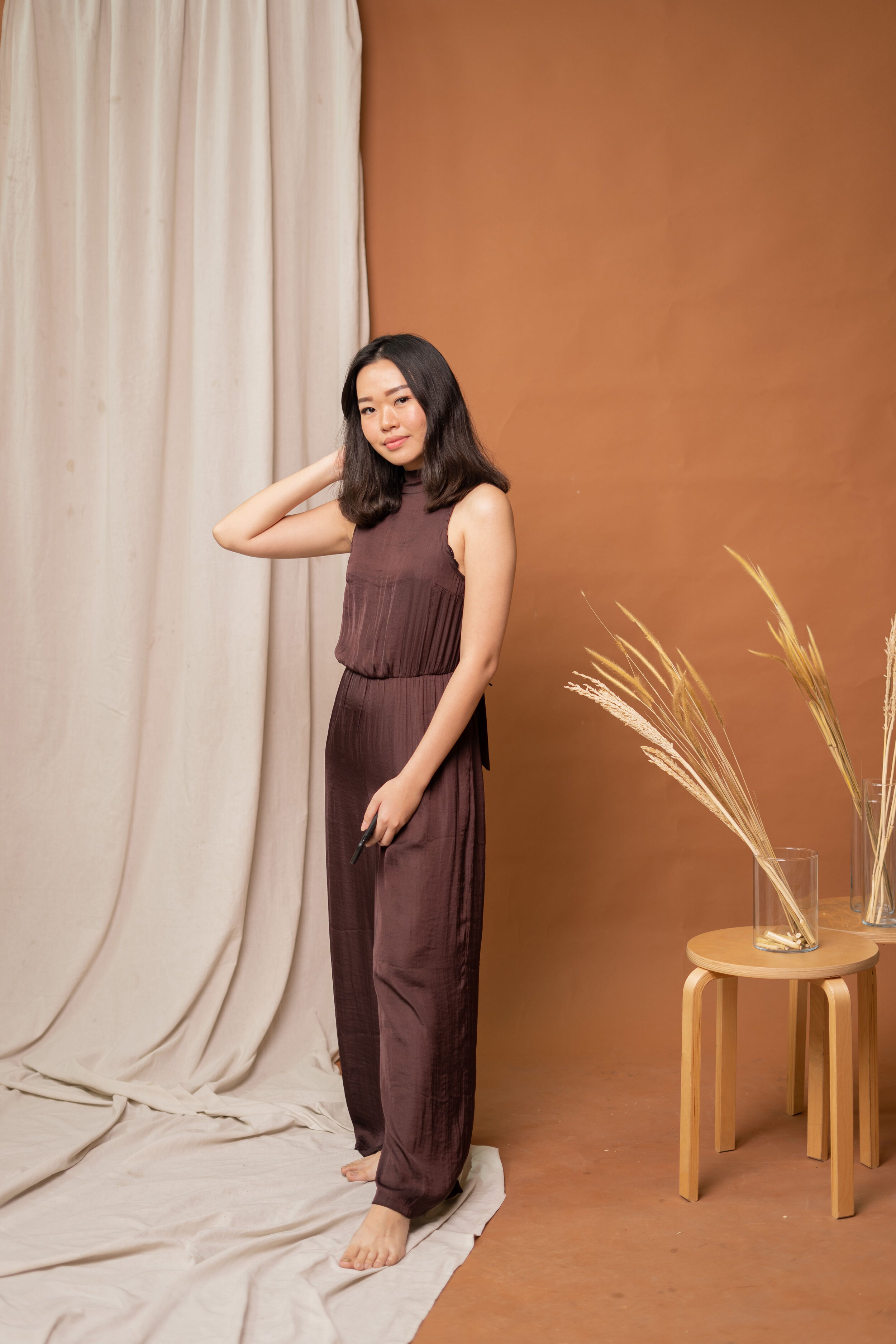From lingerie to bonding: The power of community building
In Indonesia, sex sells. Sexual objectification is used to sell all kinds of products, from electronics to F&B. It isn’t hard to find any random ads featuring women dancing with some electronic fan, a woman showing off her bare shoulder while posing with a phone, or a woman who’d give a man her phone number for wearing cologne. The only one time that sex does not sell seems to be when it is not objectified, but when it is owned. Ida Swasti’s road of building Nipplets (@nipplets_official) is paved with that.
“People said that we are promiscuous for selling lingerie and sharing information regarding sex,” she shared her experience.
Image: Ida Swasti
Ida came up with Nipplets in 2016 for many reasons. According to her, it was very difficult to find affordable lingerie with good quality in Indonesia. Even if there were any good lingerie, they came with fantastic prices. When there were any affordable ones, the quality was just not on par with her expectations. The variety of available collections did not meet her expectations as well.
The business started at a small scale. The brainstorming and development process itself only took about a month, then another two and a half months until the brand was ready for launch. However, the development process never really seems to stop for Nipplets.
Although the brand debuted in 2016, they dealt with and experienced tons of trials and errors throughout the years. “It was a one-woman show back then,” she said. Another obstacle that she faced back then was the society and the culture itself.
“The taboo that surrounds lingerie in Indonesia became a challenge. In 2016, there were not many players in the field, especially online. People were afraid to buy lingerie, especially with how daring our designs are,” she explained.
Back then, the competition wasn’t all that fierce for online-based lingerie stores like Nipplets. However, it was still a challenge to approach their main target market: women. Aside from comments from the holier-than-thou’s, the taboo surrounding women’s sexuality in Indonesia also becomes a great part of the challenge. It was difficult to break through the taboo with designs that they were aiming for.
Learning from past mistakes, Ida started to change her approach, starting with changing the brand’s visual representation in 2018. A year later, she started to actively share all kinds of information regarding female sexuality through the brand’s biggest platform: Instagram.
Apparently, the information-sharing works. People came to the brand’s inbox to share the experience they found hard to share anywhere else, or to ask about things they feel would be too taboo to ask anywhere else.
In short, Nipplets created a safe space for a lot of women to learn and share their experience, regardless of whether they were related to their own sexuality, without pressure or fear. Ida did notice that this relationship the brand is having with its followers is quite unique.
“It is fun to talk with our followers. I got a lot of input and suggestions from them,” she said. This is definitely a plus. The safe space created comfortable dynamics between them. “With Nipplets, the feeling you’re getting from online shopping is a bit different. It doesn’t feel like a mere shopping experience. It feels like chatting with a friend while shopping.”
This relationship also generated Nipplets’ most popular and prominent campaign to date, namely the Real Body Real People (RBRP) campaign. The idea behind this campaign is to exhibit Nipplets’ collections for all female body shapes.
The women posing for the brand under this campaign are not professional models. Each RBRP campaign offers different themes, but the message is only one: there are different body shapes, and Nipplets is aiming to cater to everyone.
The RBRP campaign also established a much better workflow and thoughts in the making of their products and positioning their brand moving forward. The fact that Nipplets’ audience actually suggested the most basic thing, that is a campaign for self-love from a lingerie brand, did say volumes.
“Indonesia needs changes. Social media platforms portray perfection and it turns out, it’s hard for people to relate to such content,” she mused. Alas, all that matters are relatability after all.



